One-man bands are an interesting concept. Outside of the alternative music scene, one always pictures them as being street musicians adorned with a myriad of instruments around them, ranging from tambourines, acoustic guitars, harmonicas, trumpets, and all sort of weird and Rude Goldberg-looking contraptions. Inside the alternative music scene, the whole idea is a bit more pragmatic and less convoluted. Taking a look at the metal scene as a whole, for example, we can find a great amount of multi-instrumentalists that release record after record, all by themselves and in a very DIY fashion. But beyond their studio endeavours, most one-man metal bands don’t actually perform live and when they do, they are usually accompanied by live guest musicians. However, that is not the case with Author & Punisher, the one-man industrial doom metal project of Tristan Shone. As both a mechanical engineer and an artist, Shone lives up to the industrial side of his music in a way that is unseen anywhere else, as most, if not all of his instruments and controllers are custom designed and fabricated from scratch by himself using raw materials and open source electronic circuitry. These custom instruments and controllers aren’t just for show either, as they ultimately also served as Shone’s solution on the problem of performing live as a single unit, while still sounding as he does on record, without having to rely on guest musicians or compromising his artistic vision.
This month, Author & Punisher released a brand-new record, the absolutely brutal, crushing and melodic Krüller. In lue of this amazing release, we spoke with Tristan Shone about the creative and recording process of this new record, the meanings and themes behind it and its incredible cast of collaborators.
What is the origin of the name Krüller? What were some of the main themes and ideas you wanted to explore with this new record?
Well, the name of the record was the placeholder name for the album, actually, and it was going to be another project that I was going to do that was more dub and electronic-based. But then, it just sort of became the placeholder name. I don’t really like getting into what the meaning of it is per se, because it’s kind of buried in lore from the North East of the US, where I grew up in. So, I’ll just leave that one up for people to explore and ponder. But what it sorted of developed into was… You know, getting back from the tour with Tool in 2020, I had 42 shows from then on cancelled and the pandemic started. Sitting in the Summer, we’re in May, I’m back in my studio, and protests were happening. There were people driving around with Trump flags and Nazi flags on the back of grocery stores and trucks. People were driving these trucks around with gas tanks on them, ladders and all sorts of survival gear, looking like they are in the military, and militias showing up to Black Lives Matter protests; these were things that I experienced and really, it has all ignited. Obviously, this has been building forever, but the right-wing for sure reared its ugly head in a very public way. For me, that sort of survivalist take on post-societal US, kind of like, hey, if everything breaks down and we have to survive, there’s this one side that wants to basically go to these outfitter stores and buy every bit of gear, guns and their fancy cars, and go live in the desert and basically kill each other. And then, there’s the other side, which is like the artists and the musicians and the people that actually aren’t cynical about the whole thing, we want to keep living, you know? There’s a lot of people still fighting out there to make these changes. So, anyway, this album is kind of like looking at that dystopic future but with a much more positive outlook, and trying to stay hopeful about things.
“This album is kind of like looking at that dystopic future but with a much more positive outlook, and trying to stay hopeful about things.”
Yeah, sort of like a post-apocalyptic, Mad Max kind of thing, but with a more positive view on life, so to speak.
Yeah, exactly. Let’s say that there are these people at the protests showing up with their militia gear and their guns, and they want America to be this haven for white people and colonialists. You know, we watched the same movies and read the same books, and so it’s like, how did they get to decide that some of us take this other look? And that makes me think that there’s this sort of fantasizing about violence and wanting to take a part in that. I think a lot of people now are trying to find meaning in their lives, and in some ways, I sympathize with some of these people. You’ll be at a family gathering and you can talk to a lot of these extremists in a way that seems friendly, but when we try to put meaning into our lives, their meaning involves exclusion. And I feel like a lot of us as artists, especially in the music scene, it’s like a community, we all care for each other. And so, I think we have this meaning already, you know? And maybe, for some people, things have gotten so shallow and meaningless, that this new violence and this new movement is their meaning. And it’s kind of sad, I feel bad about that.
With that in mind, and I asked this very question while interviewing Thou a couple of years ago; do you feel like your music or music such as this could be used as a sort of anthem in these political and social struggles?
Well, yes and no. I think a white guy making industrial doom metal or something is not necessarily going to be an anthem for a black and brown-fronted movement. The last thing a lot of people want is to have a metal band being a fucking soundtrack. So, I understand that this music is mostly for white people in the US and that’s fine. We make the kind of music that we make, but I hope that for the small group of us that feel like we are on the right side of things, it pumps us up and makes us think about stuff.
How was the creative and recording process like for Krüller?
At that moment, when I got back from touring, we recorded all the shows and so, I was sort of editing down a lot of that footage and audio so that we could listen to it and make a recording of each song. And so, I was able to really listen to what I sounded like in the best-case scenarios. There were some things that I liked about it and some things that I thought could improve, just from a sound perspective. Like, the vocals, I really wanted to change and make more clean, I didn’t want to put as much distortion on them all the time. And then, some of the melodies, which is one of the reasons why I added guitar to this album, and really brought in Jason Begin, who did a lot of electronics for me and co-produced the record. We really spent a lot of time taking the melodies that I had written and finding the right sounds, the tones and everything. The guitar and the keyboards on this album were a big switch for me and I really like how it came out.
Krüller features some incredible collaborators such as the aforementioned Jason Begin, as well Phil Sgrosso and Tool’s own Danny Carey and Justin Chancellor. How did all of these collaborations come about and how was it working with each of them?
Phil is actually my manager and he lives in San Diego, so we’ve known each other for a long time. And I needed a lead; I can’t even remember which song it was, and I asked him to do it. It turned out that he added some more guitars and it just got to the point where we really started thickening up the low end and then adding a lot of mid/high, like melodies and stuff. You know, one of the reasons why I haven’t played with metal guitar players is because, a lot of times, they want their sound to become the whole sound of the record and I already make that sound with my synths, my controllers and my machines. He understood that; he really found ways to sort of meld this stuff together. It was more about melody than about thickness. And then Jason, he is actually a partner with me in this company that we’re starting, Drone Machines. He’s been a friend for a really long time and helped me produce the last three records. Well, not Beastland, but other recordings. And then, Danny and Justin, just from the tour, we got to know each other. Those guys share a green room and I interacted with them the most, so after the tour, we just kept in touch. Justin and I sent tracks back and forth to try to come up with a collaborative track. And then Danny, I just said, hey, do you want to play on this track, and he said, yep, and he played it. So, it was a pretty simple process. You know, for me, I don’t collaborate that much, so it was a new experience and it was fun.
This increase in collaborators, and specifically the use of guitars back into your music, did it fuel your desire to expand the Author & Punisher lineup in a live setting?
Yeah, absolutely. You know, I didn’t want to go full band. Like, a lot of the stuff that Jason did is probably something that is going to be sequenced. I play most of the stuff; I play the drums, I sing and I play a lot of the main tone that you hear that would normally be a guitar or a bass. But the guitar was one aspect that I really have to bring along with me just because people recognize so well when they hear a guitar lead. And to play it through the PA on a sequence just wouldn’t be right. To play little synth melodies that I don’t have a third hand to do, that’s okay, in my mind.
Are there any artists you would like to collaborate with in the future?
Oh, sure. I think in my mind, I’ve always had this sort of dub, drum n’ bass, really heavy electronic project, and that would probably involve working with a real bass player. You know, somebody like Joe Preston or somebody who plays a really heavy bass tone. Or I could make some simple bass lines and beats, and then some vocalists, I don’t really know who. Honestly, I couldn’t really say at this moment, you know? Obviously, someone like FKA Twigs.
That would be awesome!
Yeah, something like that! [laughs] I don’t really see it happening. I just feel like people that do some of the heavier stuff for me would not be as desirable; I want to find somebody who could sing over some really heavy dub tracks that I could make. Maybe when I’m retired, I will start that project.
I can understand that, because if you choose someone in the metal scene, it could potentially sound much like the same.
Yeah, I’m trying to always keep one foot in the electronic world, with dance music in mind. Even though I make this sort of doom tracks, I always feel like I try to maintain some sensibility of trip hop or something, even if it’s just a slight amount.
“I’m trying to always keep one foot in the electronic world, with dance music in mind. Even though I make this sort of doom tracks, I always feel like I try to maintain some sensibility of trip hop or something, even if it’s just a slight amount.”
Jason Begin also handled recording duties on this new record. How was it working with him again on a technical level? What do you feel he brings to the table in terms of recording and production?
He is one of those guys who really has his own style, who really is a gear nerd and has tons of synths, you know, older synths and newer modular setups. And he is not one of those guys who just has it to have it; he really understands how to get sounds and get sounds quickly. So, when I wrote these songs, I would get the synth melodies, because I play my low stuff on my drums and then, usually, I start to add in these melodies on top. And then, with a basic drum machine, I’ll add in some polyrhythms to sort of fill in and add to it, because the drum beats that I play are really basic. So, once I do that, I bring it to Jason in his studio in New Mexico, and we just sit in there for a while – I went out there three or four times for this record. We put my tracks in and we just start to mess around and run all the midi out through all these different synths until we find the right eerie tone. Like, he’s got some old ones that almost sound broken and he knows the sounds that I want. The style of his own music for Vytear is so strange and glitched, I just really like his creativity. He is not a metal guy, he doesn’t play in that world, and so, it almost works to my advantage because he’s not coming up with these Marilyn Manson, typical synth tones. I just like that he is in a different world and we both like listening to dub stuff. He lives out in the desert in this strange little compound that he has, and so, the whole experience just added to the desolation feel of the album. Yeah, I love working with him and now he’s in the company Drone Machines, so he’s helping design and come up with these new interfaces because he understands how to interface with all the other gear.
You mentioned Drone Machines, an audio gear company you found with Jason Begin. Can you tell me a little about it and how it came to be?
We got in touch, maybe back in the late 2000s, in San Diego, talking about my gear. Because the way that I configure it right now is pretty specific and customized for me, and I don’t think everybody wants to do it exactly the same way I do it. But we know that people in the electronic world need more hands-on interactive and tactile controllers that are not just knobs and buttons, and that are not just plastic. We know that that’s something that people, especially performers, you’re sitting there with Pioneer decks at a techno club, and for me, it’s great. The audience loves it, the sound quality is great, but from a performance perspective, it is a little bit lacking on what is available for live manipulation of the sounds in a performative way. You know, like a guitar, piano or drums. And so, we’re making these things, these sort of little units, you know, like either 19 inches or smaller or bigger, that easily configure together, that are very physical and that are made from very nice materials like steel, aluminium, wood, stone and concrete. So basically, if you imagine something sliding or spinning that has ball bearings. You can order it in different materials, like, if you have a knob, you can order it in metal, concrete or steel. The electronics are open source, so there will be a community of people online and once you get your device, it’ll work out of the box but you can reprogram it or download code. You’ll be able to order parts from us, so like, if this thing breaks or it stops working, it’s easy to swap out components, you can open it up easily. We hope that these instruments will last you a long time and also have a life of their own. We’re just trying to get away from the plastic knob box mentality and, you know, it’s going to be probably annoying to see some people play some really bad EDM using my machines, honestly. It’s going to pain me inside, but you can’t control that. There’s a lot of shitty guitar players out there that play really good guitars.
Going back to Krüller, the artwork was done by Zlatko Mitev. When choosing the artwork for this record, did you select it from an existing piece that Mitev had or did you commission the work?
He goes by Z, I’ve known him for quite a while, we’re fans of similar music, but I’ve known about his illustrations for a long time because he works with the La Jolla Playhouse, which is a big theater in town. He does a lot of artworks there but also a lot prop design, he’s just a really creative guy. And so, I would say it was late Summer 2020, we had a few beers and started talking about the themes of the pandemic that we talked about at the beginning, and started to think about an alternate world. And Octavia Butler’s book influenced me, as well as N. K. Jemisin, and Ursula Guin’s The Left Hand of Darkness. These books that I was reading kind of reminded me of these desolate landscapes where people were finding meaning in these terrible situations. In Parable of the Sower, the main character creates her own religion called Earthseed, which is basically a religion based on a more indigenous usage of the land and its management, and learning how to live off of growing your own seeds. There is violence but it’s more for self-protection. So, Z and I started talking about this and we also started talking about, like, if there was no water, how would people survive and how would animals survive? Well, they would probably adapt a little bit, and so, we started thinking about these kind of survival, large vehicles, which kind of became what Krüller is; it was like this big vehicle. But I didn’t want anything to be black and white. We wanted it to be more colourful, and then, the characters that were in the landscape were not with big guns or military gear; it’s much more stylized. We totally came up with this world together and then, it was his take on sort of South West desertscape. You know, similar to Portugal or Spain, it’s what California is kind of like.
Do you always seek to create a connection between the cover of a record and the music within it?
Yeah, for sure. Beastland was actually an image that a Finnish artist did for me as a flyer for a festival, and so, I basically licensed the image from him. That was a much more cynical record, I would say. That was a darker record for me and I tried not to do that on this record, I tried to keep things a little bit brighter, with less cynicism. And Melk En Honing was another one that we created from scratch, and I was using images of my gear before then, but I just decided that people had seen enough of that.
Later this year, you will be touring Europe with Perturbator and Health. How is your morale when it comes to returning to live shows?
That is a really good question. I’m starting to get to the point where, and maybe it’s just because I’m anxious about this record and playing out, but I’m actually supposed to be going at the end of March and April on another European trip. I’m really excited about it, obviously. I mean, I realize that maybe attendances won’t be as big and we’re going to have to do the masking thing, but I just feel like, in some ways, people need this right now and the risk is pretty low for me. There is that moment where you can mask up as much as you want but when you are on stage and there is a couple hundred people in front of you, they’re all breathing down your neck, and that would get you.
“I realize that maybe attendances won’t be as big and we’re going to have to do the masking thing, but I just feel like, in some ways, people need this right now and the risk is pretty low for me”
Interview by Filipe Silva
Photo by Becky DiGiglio, courtesy of Author & Punisher


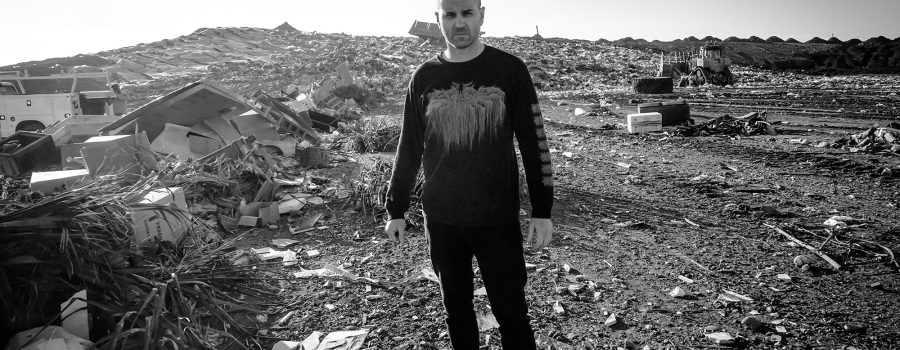
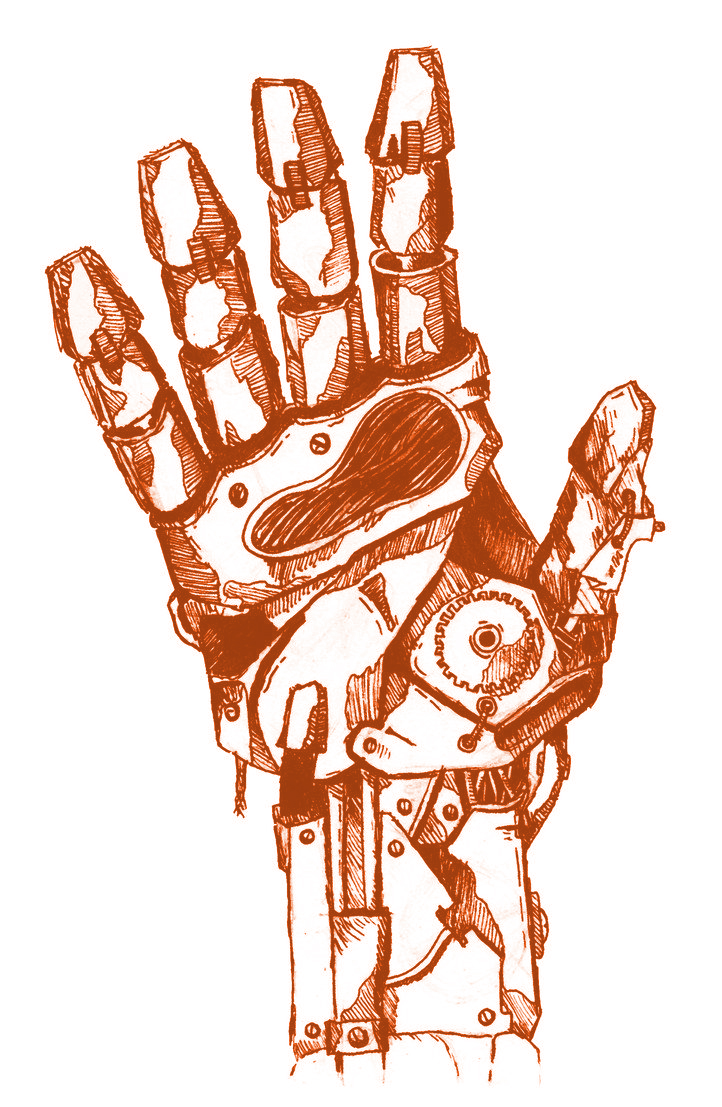

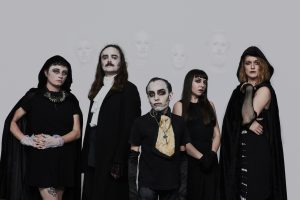
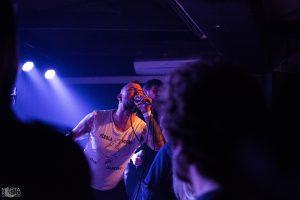
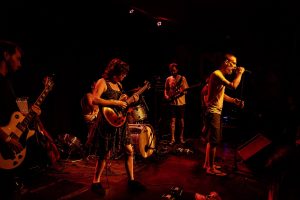
Leave a Reply
Your email is safe with us.